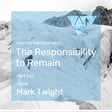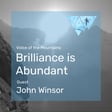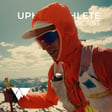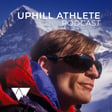
A Climbing Conversation with Steve House and Josh Wharton
In the latest episode of the Uphill Athlete podcast, Steve chats with long time friend and climbing partner, Josh Wharton. Josh is a man of all trades in climbing and a highly accomplished climber. Steve and Josh dig into the origins of Josh’s climbing dating back generations to his families experiences in the UK. The two discuss how his family’s principles around climbing influenced Josh’s career and passions. They bounce around the climbing areas that have been most meaningful to Josh and how he grew through the lessons he learned on the walls. Two legends of the climbing world reminisce on past experiences and how their learnings can be applied to future generations.
If you'd like to learn more about Uphill Athlete, visit uphillathlete.com or write to us at coach@uphillathlete.com



















